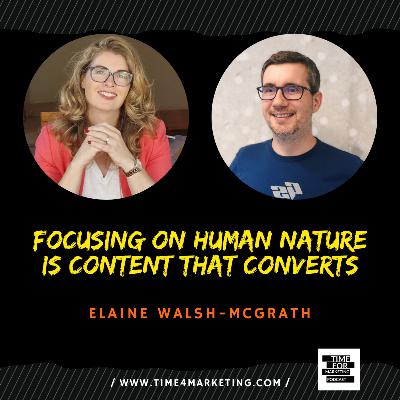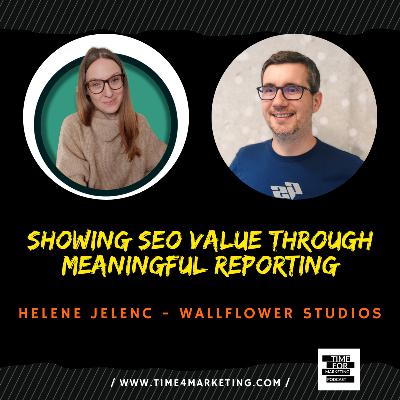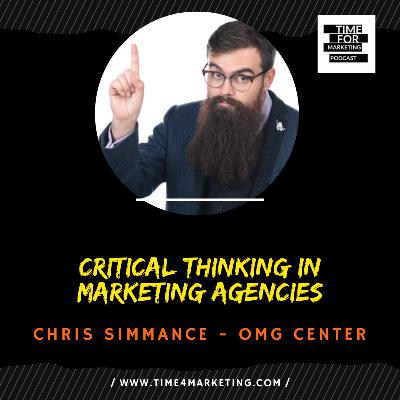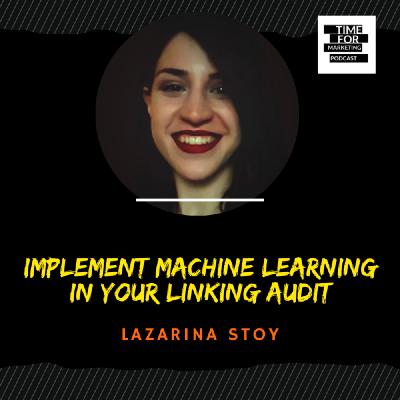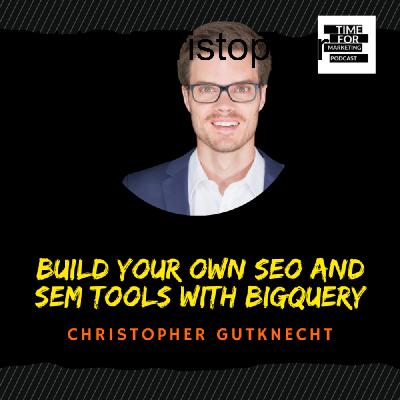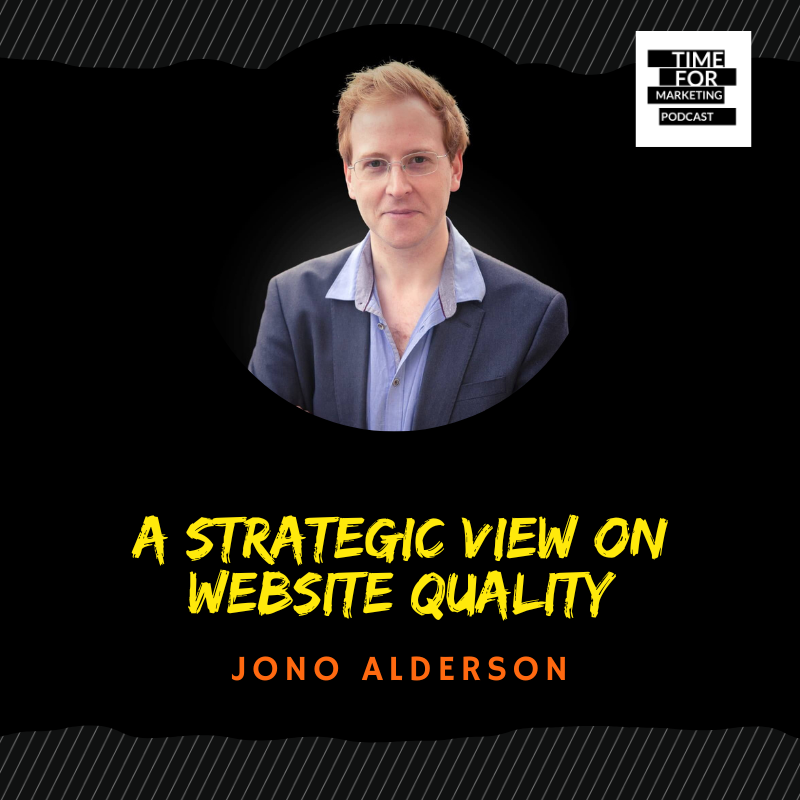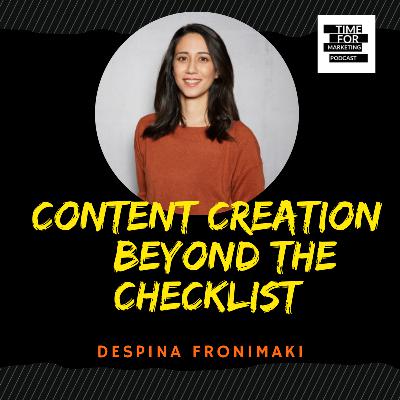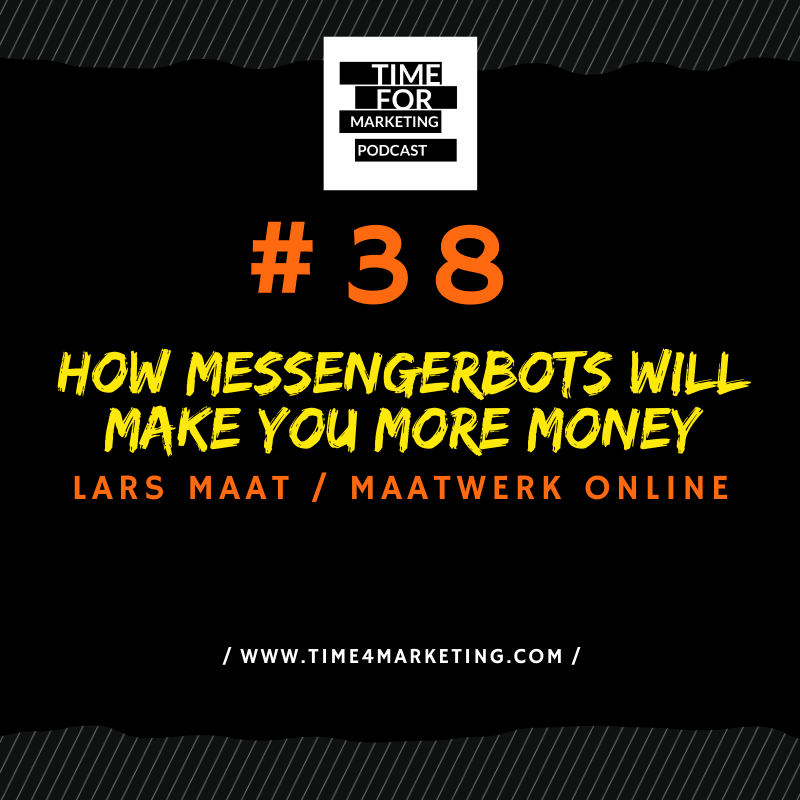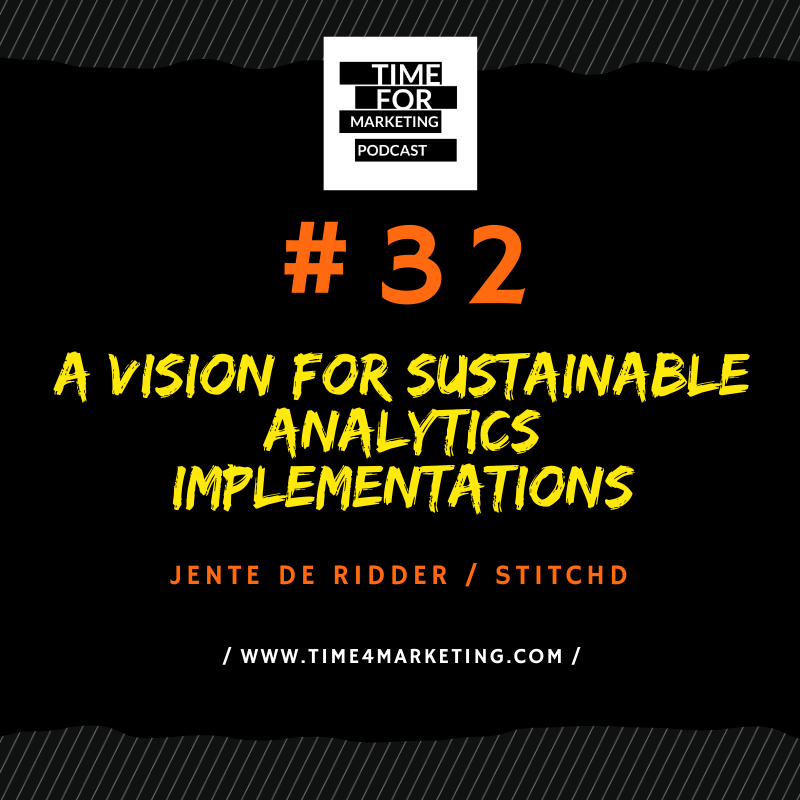#34 - Michał Suski - Data driven content strategy for any business that Google will love
Description
We are back and with a bang. Conferences are back, even if they are online only. I've chosen Michal to talk to because the topic is extremely important in SEO and SEO is extremely important for your business.
Michal will speak at the SEOCON 2021 that will take place in March 2021. Listen to the 4 key points that he prepared and check out his presentation at the conference!
Michał is the co-founder of https://surferseo.com/, you can find him on LinkedIn.
Here is the transcript of the podcast recording:
Hello, and welcome to the Time4Marketing podcast, the podcast that brings you the best marketing conference speakers sum up their presentations at the podcast and gives them to you in a short time slot. My name is Peter, and we are back. It's been almost a day, almost exactly to the day of the recording of this podcast since we've stopped doing the podcast in 2020 March, while it was the time where all the conferences were more or less canceled and there was nothing for us to report on.
I've waited. The pause was a bit longer than I anticipated. I thought they we're going to wait for a couple of months, but this is something that we can say for the whole Corona time that's a bit longer than we anticipated. We are back and coming back with a big bang. I'm very glad that we have Michal Suski here with us today, Michal from Surfer SEO or Surfer SEO tool that Michal is going to tell us all about. Michal, hello, and welcome to the podcast.
Michal: Hello, everyone. Thanks for having me. That's a big pleasure for me to be on the restart of the podcast, the first guest interview. That's a huge thing for me. I'm happy to be here.
Peter: You're very, very welcome. It's great that conferences have come back. I know that in the last year, we had conferences but we had to unlearn on how to be physically at conferences and learn to how to be online on conferences. You spoke in a couple of conferences in the last year. How is your feeling about how did going to the conference change? Is it better? Is it different? What do you feel?
Michal: It is definitely different. Well, I like it but I also don't like that we cannot meet in person and do those long hours of discussions after the stage is empty. I miss that part a lot. However, regarding the online conferences, there is this big impact on presentations quality, I think, because everyone goes to the conference now, I mean goes to the conference to get the best information out of the stage. Speakers have to push their limits to deliver the best piece of information they can. I feel like it's beneficial to the whole industry that now, everyone concentrates 100% on the presentation itself. The bar is raised a little bit. That's cool about it.
Peter: That is less fluff. The audio should be the most important part and because of that, the message must be clearer. Of course, as we used to say, after 10:00 PM at the bars, the best Lynx were sold. Probably, this is what we're missing on.
Michal: That's true. The networking part of the conferences, in the past, it was the biggest incentive for me to go for the conference to do the networking, to meet people and make those deals you mentioned. Right now, I'm missing it a lot.
Peter: I would agree. You're located in Poland. How is Poland? Are you allowed to go out? Are you allowed to able to go for a beer outside?
Michal: Yes. It's not that bad. We can go out. We can walk to the park, do hiking, and so on. However, we cannot go to the bar and have a beer. The bars are closed, and it's only delivery. You got to have a meal but you have to have it at home, which well, that's fine but better than nothing.
Peter: That's how most of the Europe or most of the world is working right now. Michal, you are the co-founder at Surfer. Tell us a bit about what Surfer is, what it does.
Michal: Sure. Surfer is a content intelligence tool. It takes you from execution and ideation. It streamlines the whole process of content creation and stretching your domain in the right direction so Google can really treat you as an expert in specific industry. The combination of tools that we have is made just for that. You can do the ideation process and then execute the content creation with the SEO-friendly approach in place. That's what we do.
Peter: It seems that there was a shift in the way how SEO is done in the last couple of years from the backlinking, to the on-site, to the specific on-site. How do you see that and how Surfer fits into that?
Michal: During the last couple of years, it turned out that Google really pays attention to putting the best answer to the query they can. This way, they have to evaluate the content much better than they used to do in the past. This is probably why on-page optimization has bigger impact than it used to have 10 years ago. That's definitely a major change and especially because Google invested tons of money into, for example, NLP with the BERT update and so on.
They just keep on learning how to understand the content much better, and this is why the content just has to be pinpoint when you want to really not only rank, but maintain rankings. This is pretty, pretty important these days. I feel like Surfer hit the nail in the head regarding the date of premiere of the tool, and the early stage drove and so on. I'm really happy about the timing of releasing the tool and everything around it, really.
Peter: Before we go to the conference, to your presentation, we are nearing the time where the web vitals are going to become an important factor in SEO. How do you think that that is going to influence a factor in SEO? How do you think that is going to influence what we're doing?
Michal: First of all, we have to know that Google cannot shuffle the search results entirely. Even though it may be important ranking factor, they can't afford on completely reversing the search results. Right now, they present the best answer they can, and if the core web vitals will become 80% of their algorithm, most likely, we will end up with totally messed search results, which they cannot afford. My opinion on this is that they will be doing this shift in a period of time. Its impact may be growing over time. However, we cannot expect in May or whenever they will release it. For real, we cannot expect a massive change in the search results. It can be significant, but it won't be overhauled.
Peter: Similar to the previous announced changes where we were waiting for doomsday but it never came, right?
Michal: Yes.
Peter: I've invited you to the podcast because you spoke at the SEOCON 2021 with a presentation called Data-driven content strategy for any business that Google will love. That's a big title, especially for the "any business that Google will love". Usually, I would ask you how the conference was and how it's being at the conference, but because the conference is online, there's just nothing to say. I'll just let you directly go into your presentations. Michal here are your five minutes.
Michal: Sure. I tried to record the presentation in the way like I'm not sitting in front of the microphone, but I actually arranged a stage and had the projector putting the slides on the wall. At least it feels a little bit more like on the real presentation. I think that's cool. Regarding the presentation itself, I created a four take-aways from that presentation. The first one is growing topical relevance based on data. It's all about not throwing topics on your page from your gut feeling so you decide, "Okay, I will write about this, and I will write about that." Instead, you should list your top-ranking competitors and export their visibility to find out which topics bring them a lot of traffic.
You can find this way look-alike topics. Stretching your content by covering those most common topics first will take you to the stage where you can start the snowball effect that I will explain in a few moments. Regarding how to actually make it happen is that you have to leverage the keywords clustering, which is all about that. The whole presentation is about creating the right keywords cluster for your domain. You are an expert in the niche that you want to be performing the best. Of course, there are many ways of keywords clustering. I have four prepared, and two of them are rather gut feeling-based and the other two are based on the Google algorithms itself.
I will just quickly mention that you can do a clustering manually or semantically to find out the semantic commonness. These two types are rather manual for the small projects that you know the industry well, so you can connect those clusters together, I mean those keywords. Regarding those two more advanced methods that incorporates Google algorithm into the equation is that you can use either search results of two keywords to compare whether they have the same URLs ranked for both, and this way you can decide if Google presents the same content, you can write for both keywords together. That's one way.
The other way is comparing sets of keywords that pages rank for. If there is a big overlap between two sets of keywords that Google ranked the same content, you can decide, "Definitely, these keywords are related and I can tackle them within the same article, even the same URL in general." What is important in that is that Google creates clusters, too. How Google creates clusters, basically by ranking pages on a multiple keywords. As you know from your experience, page can be ranking on dozens or even hundreds of keywords.
According to AA Trust case study, there is this case study somewhere on the web, you can find it out, but basically


